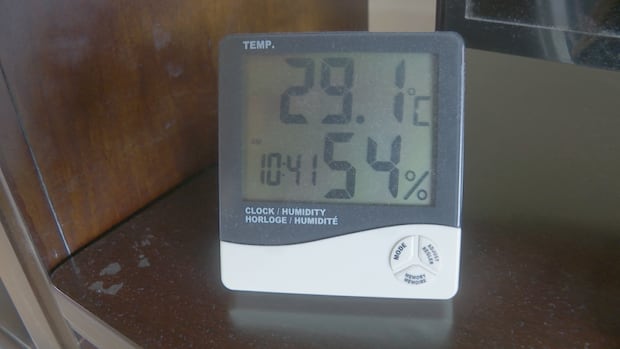
"Christena Abbott is a senior living in a highrise apartment in Toronto. On the day we spoke, the temperature was 31 C. "I have asthma, I'm diabetic, on insulin. I have six pinched nerves and I cannot take heat at all," she said. Fortunately for Abbott, she has a portable air conditioner. "I can't live without it," she added. But not everyone is as fortunate as Abbott."
"A 2024 study published in the journal Environmental Research: Health found that those living on income assistance were 2.4 times more likely to die during a heat wave during the B.C. heat dome of 2021. "Ninety-eight per cent of the people who died during that event died indoors," said Jacqueline Wilson, counsel at the Canadian Environmental Law Association (CELA)."
"As fossil fuels continue to be released into the atmosphere, and the climate continues to warm, Canadians will be faced with more frequent and intense heat waves, but having access to air conditioning isn't equitable."
During heat waves, low-income families living in multi-unit dwellings face the greatest challenges, with a significant risk of heat-related deaths. A notable study reveals that those on income assistance were 2.4 times more likely to die during the 2021 B.C. heat dome, demonstrating that most fatalities occurred indoors due to excessive heat. Notably, individuals like Christena Abbott rely on portable air conditioning for survival, yet access to such cooling methods is not equitable. As climate change leads to more extreme temperatures, effective solutions are urgently needed to assist vulnerable populations.
Read at www.cbc.ca
Unable to calculate read time
Collection
[
|
...
]